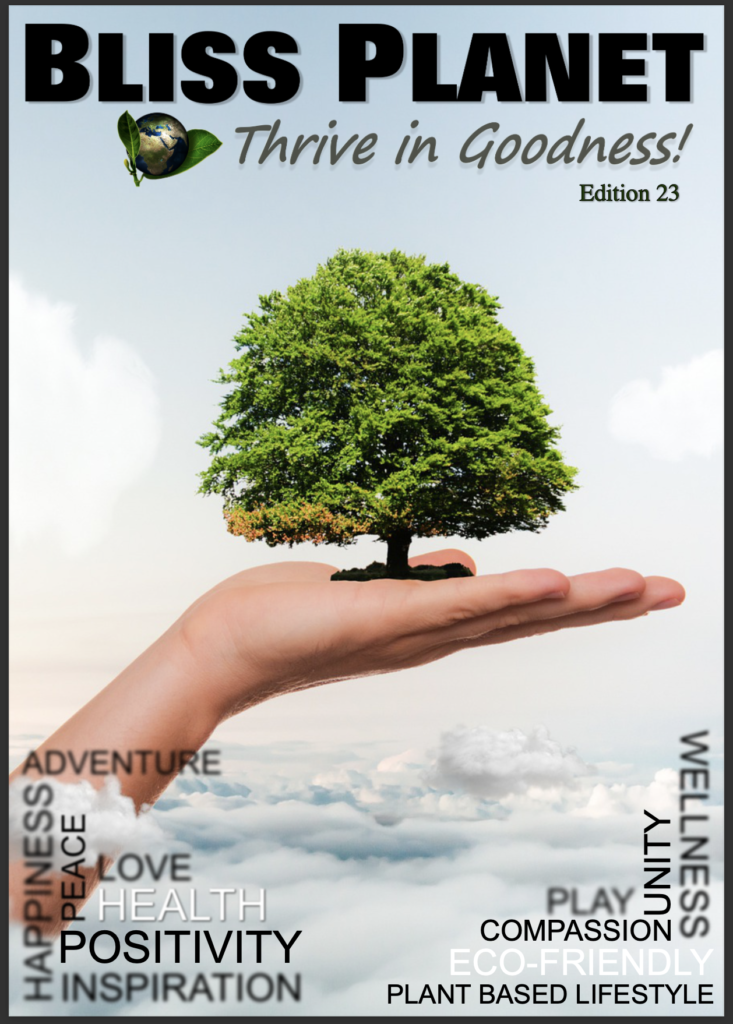Welcome to The Ultimate Guide To Intermittent Fasting For Vegans And Plant-Based Eaters. The buzz around intermittent fasting is hard to ignore. From its growing popularity among health and wellness enthusiasts, to the multitude of benefits it offers, this dietary pattern has become a trending topic.
But why should the vegans and plant-based eaters care? That’s exactly what we aim to discuss in this comprehensive guide. We will shine a light on how to navigate the fascinating world of intermittent fasting, specifically tailored for those who follow a plant-based or vegan lifestyle.
So, without further ado, let’s dive into the world of intermittent fasting, and how it could become a game-changer in your quest for optimal health and wellness.
Understanding Intermittent Fasting
What Is Intermittent Fasting?
Intermittent fasting, a term buzzing with popularity among the health and wellness enthusiasts, is not as complex as it sounds. It’s simply an eating pattern where you cycle between periods of eating and fasting. This approach to healthy eating is not about what you eat, but rather when you eat.
There are various methods to this practice, such as the popular 16/8 method (fasting for 16 hours and eating within an 8-hour window), 5:2 diet (eating normally for 5 days and restricting calories for 2 days) and eat-stop-eat (involves a 24-hour fast once or twice a week).
Intermittent fasting comes with a bundle of benefits for your overall health. It’s known to aid in weight loss, improve metabolic health, and even extend lifespan. However, for the plant-based and vegan eaters, some challenges may arise. It’s essential to ensure a balanced intake of nutrients in the eating window to fuel the body adequately.
Benefits of Intermittent Fasting for Plant-Based Eaters and Vegans
Intermittent fasting offers a myriad of benefits to those who follow a plant-based or vegan lifestyle. Alongside weight management, it provides an avenue to enhanced digestion, thus minimizing bloating and discomfort.
Furthermore, intermittent fasting can serve as a powerful weapon in your health arsenal, assisting in the management of chronic conditions, and potentially boosting longevity. While it may seem like a challenging endeavor, the benefits can be well worth the effort.
- Weight loss: By limiting your eating window, you naturally decrease your calorie intake which can lead to weight loss.
- Improved digestion: Intermittent fasting gives your digestive system a break, which can improve gut health.
- Chronic disease management and longevity: Studies have shown that intermittent fasting can help manage diseases like diabetes and heart disease and may contribute to a longer life.
However, it’s essential to remember that every person is unique, and the way our bodies respond to intermittent fasting may vary. Hence, it’s always recommended to consult with a healthcare professional before embarking on this journey.
The Connection Between Plant Based Eating and Intermittent Fasting
When it comes to leading a healthy lifestyle, intermittent fasting and plant-based eating go together like peas in a pod. Both practices focus on holistic wellness, with plant-based eating emphasizing nutrient-rich food sources and intermittent fasting promoting improved metabolic health.
Vegan and plant-based eaters may find unique challenges when incorporating intermittent fasting into their routines, but the potential benefits are substantial. Not only does the combination aim towards optimal health, but it also potentially fosters a deepened sense of connection to our food and our bodies.
- Plant-based diets are packed with vitamins, minerals, and other nutrients that can help support the body during fasting periods.
- Intermittent fasting can complement a plant-based lifestyle by helping to regulate digestion and boost energy levels.
While the road to successful intermittent fasting as a vegan or plant-based eater may have a few bumps, the journey is well worth the effort for the potential health benefits.
How to Start Intermittent Fasting as a Vegan or Plant Based Eater
The journey of incorporating intermittent fasting into a plant-based lifestyle begins with guidance from a healthcare professional. Consulting with experts ensures that you’re not compromising your health while striving for wellness.
- Consult with a healthcare professional: This is essential to ascertain your readiness for the new regimen and avoid potential health risks.
- Gradual implementation: It’s a marathon, not a sprint. Start slow, perhaps with shorter fasting periods, and gradually increase the duration over time.
- Food options: A vegan or plant-based dieter needs to choose nutrient-dense foods that provide sufficient energy during the fasting period. Foods like legumes, whole grains, nuts, seeds, fruits, and vegetables are great options.
Remember, the goal is not to starve but to create a balance that aids in achieving your health objectives while maintaining a plant-based lifestyle.
Creating a Balanced Intermittent Fasting Meal Plan for Vegans and Plant Based Eaters
While embarking on your intermittent fasting journey, maintaining a balanced meal plan is crucial, especially if you adhere to a vegan or plant-based eating lifestyle. This ensures all your nutritional needs are met and you won’t fall short of key nutrients.
- Ensure diversity in your meals: Incorporate a variety of fruits, vegetables, legumes, and whole grains to receive a range of nutrients.
- Protein is key: As a vegan or plant-based eater, your protein sources may be limited. Include items like tofu, lentils, and chickpeas to meet your protein needs.
- Don’t forget healthy fats: Avocados, nuts, and seeds can offer healthy fats which are important for your body.
While creating your meal plan, stay aware of potential nutrient deficiencies, like B12, iron, and omega-3 fatty acids, which vegans and plant-based eaters are often prone to. Consult with a healthcare professional to ensure your diet is balanced and fulfilling your nutritional requirements.
Sample Meal Plans for Intermittent Fasting as a Plant Based or Vegan
When integrating intermittent fasting with a plant-based or vegan lifestyle, it’s essential to plan nutrient-rich meals. Here are a few examples:
- 16/8 Method: Fast for 16 hours, eat for 8 hours
- Breakfast: Quinoa porridge with mixed berries and chia seeds
- Lunch: Mixed greens salad topped with roasted chickpeas and avocado
- Dinner: Lentil curry with brown rice
- 5:2 Method: Eat normally for 5 days, restrict calories for 2 days
- Normal Days: Follow the meal plan as per the 16/8 method
- Restricted Days: A large green smoothie for the day
Remember, these are just guidelines. It’s vital to listen to your body and change your meal plan according to your nutritional needs and hunger signals.
Tips for Success while Intermittent Fasting as a Vegan or Plant Based Eater
Intermittent fasting is a powerful tool, but like any tool, it’s how you use it that counts. When it comes to fasting as a plant-based eater or vegan, there are a few tips and tricks that can help you maximize your results and maintain your health.
- Listen to Your Body: Your body is the best guide when it comes to intermittent fasting. If you’re feeling lethargic or unwell, it might be time to adjust your fasting schedule or eat a nutrient-dense meal.
- Manage Hunger and Cravings: Remember, it’s normal to feel hungry while fasting. But if cravings become unbearable, consider incorporating more satiating foods like avocado, legumes, and nuts into your diet.
- Don’t Neglect Self-Care: Intermittent fasting is not just about skipping meals. It’s also about nourishing your body and taking care of yourself. Make sure to get enough sleep, stay hydrated, and engage in activities that reduce stress.
In the end, succeeding in intermittent fasting as a plant-based eater or vegan is about finding the right balance that works best for you.
Combining Intermittent Fasting with a Plant-Based Lifestyle for Optimal Health
Intermittent fasting and a plant-based lifestyle can be a powerful combination for achieving optimal health. This duo can potentially bolster the benefits of each other when done right.
- Balance is the key here. While intermittent fasting brings about metabolic adaptability, plant-based diets provide nutrient-rich foods that can support your health during the fasting periods.
- It’s essential to take an individualized approach. Everyone’s body responds differently, and it’s crucial to listen to your body and adjust your diet and fasting schedule accordingly.
The world is full of successful individuals who follow this lifestyle. They serve as inspiration for how combining intermittent fasting with a plant-based diet can lead to increased energy, improved health, and longevity.

Intermittent fasting (IF) is an eating pattern that cycles between periods of fasting and eating. It does not specify which foods to eat but rather when you should eat them.
There are many different intermittent fasting protocols, but all of them involve splitting the day or week into eating periods and fasting periods. During the fasting periods, you eat very little or nothing at all. During the eating periods, you eat normally.
Intermittent fasting has been shown to have a number of health benefits, including weight loss, improved blood sugar control, and reduced inflammation. It may also help to protect against chronic diseases such as heart disease, cancer, and Alzheimer’s disease.
Intermittent fasting can be a safe and effective way for vegans and plant-based eaters to improve their health. However, it is important to make sure that you are getting enough nutrients during your eating periods.
Here are some tips for intermittent fasting as a vegan or plant-based eater:
- Choose a fasting protocol that works for you. There are many different intermittent fasting protocols, so it is important to choose one that fits your lifestyle and health needs. Some popular protocols include the 16/8 method, the 5:2 diet, and the eat-stop-eat diet.
- Make sure you are getting enough nutrients. During your eating periods, focus on eating nutrient-rich foods such as fruits, vegetables, whole grains, legumes, nuts, and seeds. You may also want to consider taking a vegan multivitamin to ensure that you are getting all of the nutrients you need.
- Break your fast slowly. When you are ready to break your fast, start with small, easy-to-digest foods such as fruits, vegetables, or yogurt. Gradually add more solid foods to your diet over the next few hours.
Here are some examples of vegan and plant-based meals and snacks that are suitable for intermittent fasting:
- Breakfast: Oatmeal with berries and nuts, avocado toast, smoothie made with fruits, vegetables, and plant-based milk
- Lunch: Salad with lentils, quinoa, or chickpeas, tofu sandwich on whole-wheat bread, soup made with vegetables and legumes
- Dinner: Lentil soup, stir-fry with tofu or tempeh, pasta with marinara sauce and vegetables
- Snacks: Fruits, vegetables, nuts, seeds, yogurt, hard-boiled eggs
If you are considering trying intermittent fasting, it is important to talk to your doctor first, especially if you have any underlying health conditions.
Final Thoughts
And so, we come to the end of our enlightening journey into the world of intermittent fasting for vegans and plant-based eaters. During our voyage, we delved deep into the nuts and bolts of this popular health strategy, focusing on its unique benefits and challenges for those embracing plant-based lifestyles.
We highlighted the myriad health benefits afforded by such an approach, from weight loss and improved digestion, to the management of chronic diseases and potential longevity. We also discussed the importance of consulting a healthcare professional before beginning your intermittent fasting journey, as well as the crucial role of a balanced meal plan and listening to the unique signals of your own body.
Ultimately, remember that balance and individuality are key. Every journey is unique, so tune in to your own body, embrace self-care, and embark on this intermittent fasting journey in the way that serves you best.






Intermittent fasting for vegans, an intriguing topic indeed! Intermittent fasting is a dietary approach that involves alternating periods of fasting and eating. For vegans, it is possible to incorporate intermittent fasting into their lifestyle by focusing on plant-based foods during their eating windows. This could include nourishing meals rich in fruits, vegetables, whole grains, legumes, and plant-based proteins. However, it is important for individuals considering intermittent fasting to ensure they are meeting their nutritional needs and consulting with a healthcare professional or registered dietitian to ensure a balanced approach. Remember, everyone’s body is unique, and what works for one person may not work for another.
Are you a vegan looking to improve your health and find happiness in your lifestyle? Intermittent fasting may be just the solution you’re seeking. Not only does it provide numerous health benefits, but it also aligns perfectly with the vegan way of life. By incorporating intermittent fasting into your routine, you can enhance your overall well-being while staying true to your values. Intermittent fasting has been shown to reduce the risk of chronic illnesses such as heart disease, diabetes, and even certain types of cancer. It promotes weight loss and improves metabolic health, giving you the opportunity to achieve your desired physique and feel more confident in your skin.
Additionally, intermittent fasting has the potential to boost your mood and increase feelings of happiness by regulating neurotransmitters in the brain. By taking control of your eating schedule, you can experience improved mental clarity and focus, allowing you to tackle daily tasks with ease and efficiency. So, why not try incorporating intermittent fasting into your vegan lifestyle? Not only will you be improving your health, but you will also be enhancing your overall happiness. Empower yourself to take charge of your well-being and embrace all the benefits that intermittent fasting has to offer.